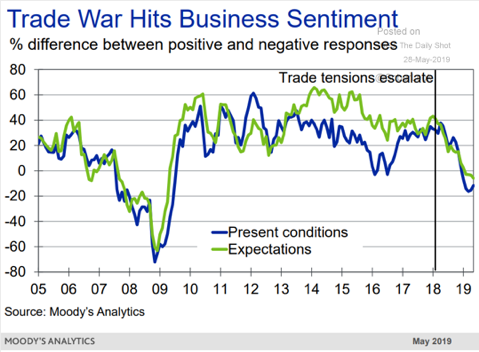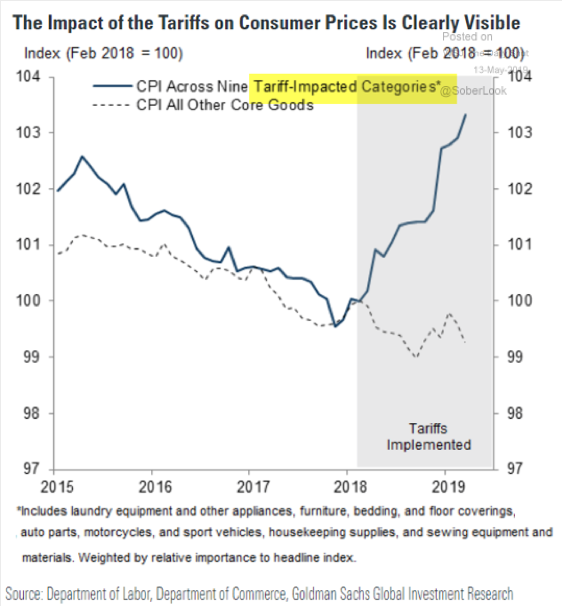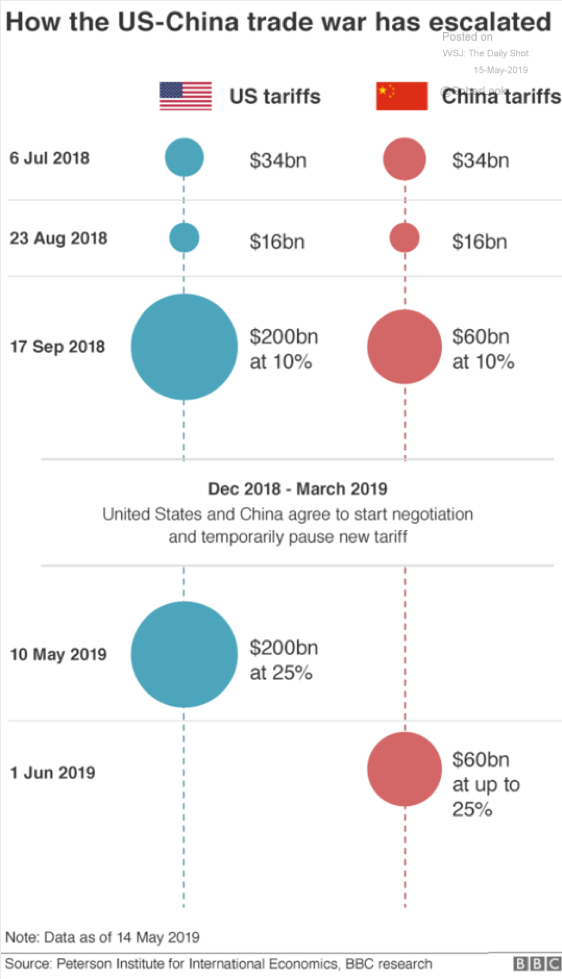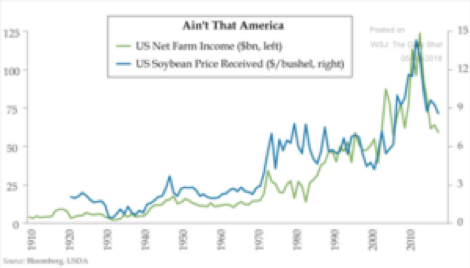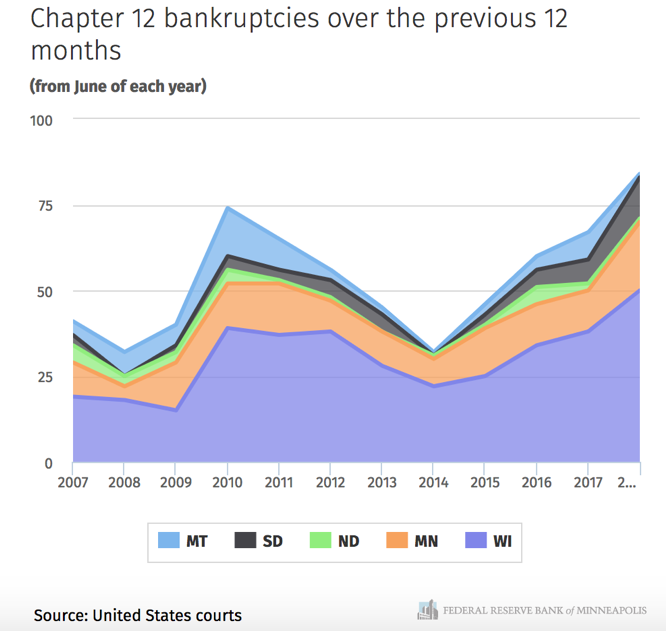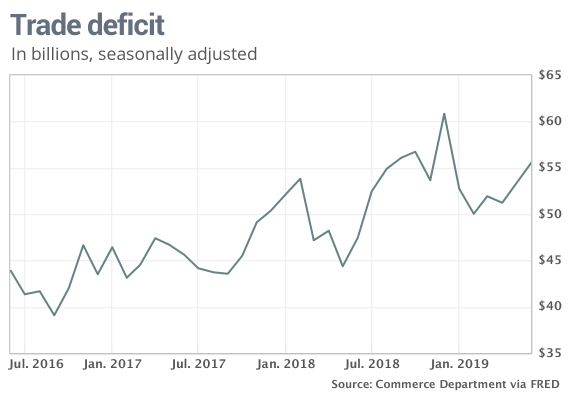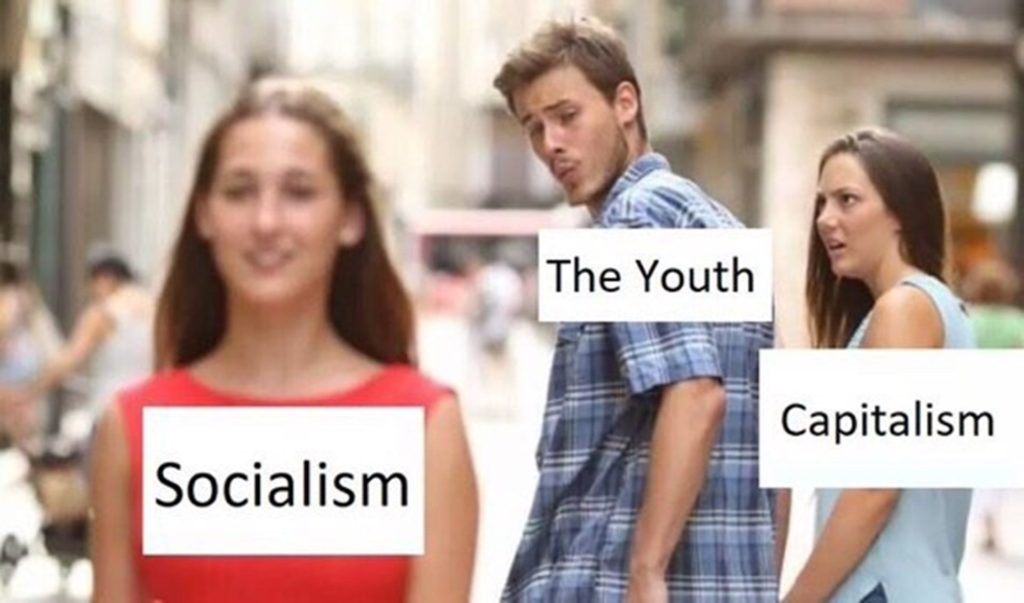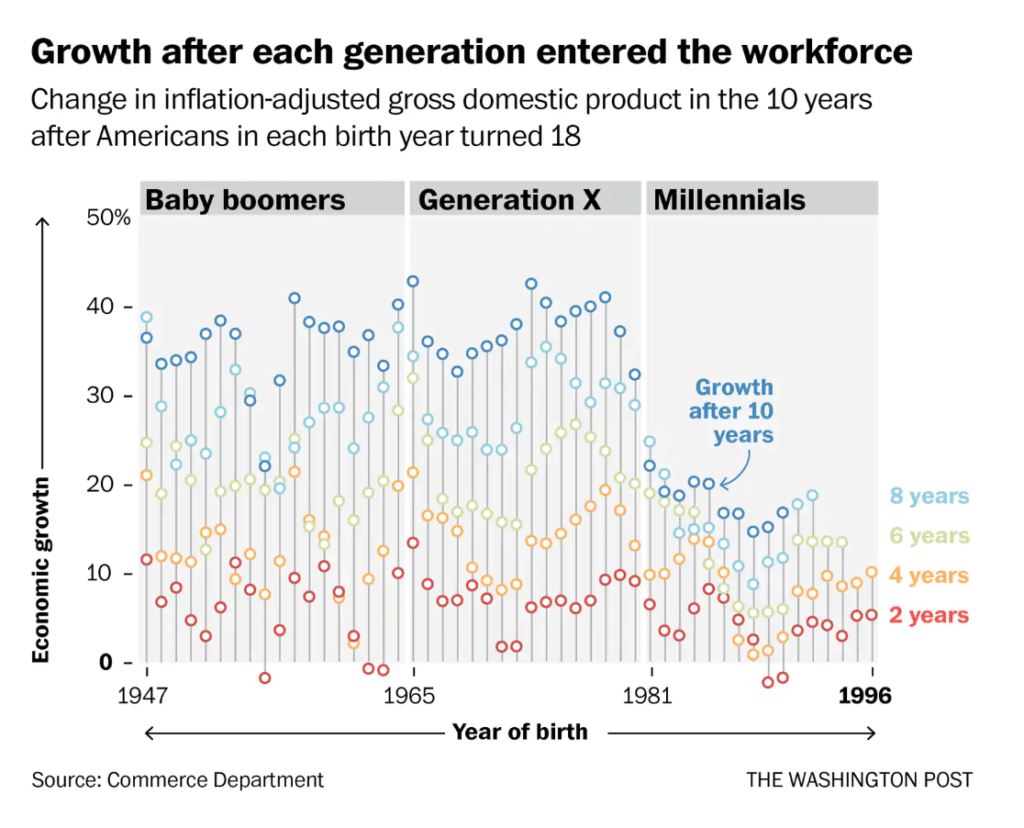On Bloomberg TV, VMware CEO, Pat Gelsinger, observed that with escalation of the trade war he sees, “two separate trading blocks forming the United States and China, we want to be a player in both and will have to adjust, our strategy, investments, supply chains and operations as a result.” He sees both countries digging in for the foreseeable future.
The evolution of a two trading block global economy has a major impact on how businesses operate in the next five to ten years and integrated economies. Those companies with major operations in China that ship products to the U.S. will continue to be adversely affected by U.S. tariffs on Chinese goods. Growing trade headwinds also face U.S. companies shipping goods to China. Besides tariffs, trade research shows Chinese importers will need to deal with U.S. non-tariff barriers that are the most stringent and time consuming. Recently, China has allowed the exchange rate for its currency to rise against the dollar effectively mitigating about 5 % of increasing tariff costs on U.S. imports.
Here is a list of industry sectors most impacted by the trade war with businesses exports and imports to China:
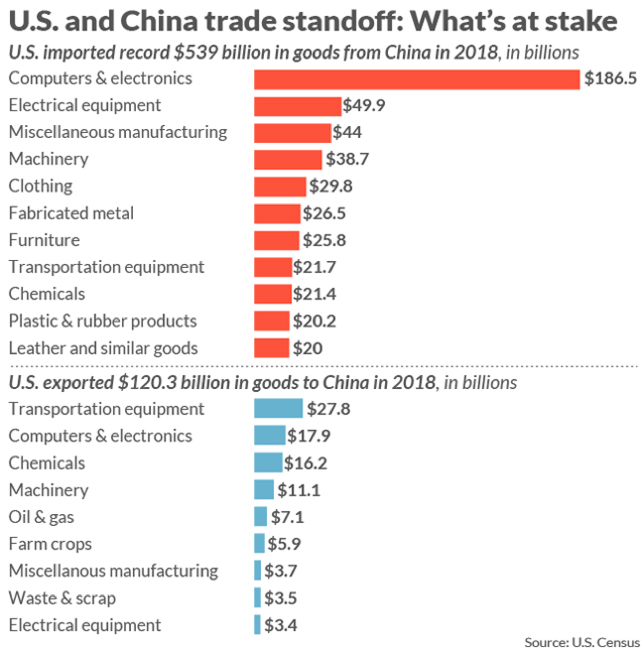
Major software and electronics companies like Apple with $56b in sales making up 20% of total global revenue from China will continue to see declining sales. Apple, and other companies in the same shoes, will have to radically shift supply chain and sourcing for manufacturing. CISCO, a global network systems manufacturer recently reported to shareholders a 25 % drop in sales of network products to both state owned and private corporations in China. Many American manufacturers’ source components and sub-assemblies from China and are shipped to the U.S. mainland for final manufacturing. These supply chains will have to change if they are to sustain profits. Caterpillar, in the transportation sector, recognizes 10 % of global revenue from China, and has experienced a significant drop in sales. Tariffs have significantly reduced soybean exports to China by U.S. farmers to nearly zero. The Federal Reserve in Minneapolis reports farm bankruptcies have reached 2008 levels. These are just a few examples. Each day the list of impacted industries and companies grows longer.
What does a two block trading world mean to our democracy? The trade war seems to be here to stay. As such, we need to go to the strengths of our democratic government and our multilateral approach to global development to ensure peace.
- Tariff Alternatives – blanket tariffs as the present GOP Administration has implemented are driving up prices for consumers, created reduced sales for corporations and crated a world economic environment of confusion and uncertainty. Working with our alliance partners in the EU, Australia, Japan, South Korea and others to pressure China to change its laws related to intellectual property theft, state subsidized industries and unfair tariffs would be a far more effective approach than America trying to go at China alone. The U.S. needs to reach out to the free trade capitalist leaning economic entities that the government allows to operate – like entrepreneur owned and operated companies within China to build both economic and political links.
- Trade Policy Consensus Development – Democrats and moderate GOP congressional members need to drive the national dialog instead of letting our POTUS use threatening, bullying and constantly flip-flopping tactics in trade discussions. Reasonable well thought out policies built on consensus from both parties is crucial otherwise any agreement may not be ratified by Congress.
- Federal Reserve Independence – our President has continued in a blitz of tweets to attack Chairman Jay Powell, and the Federal Reserve’s policies totally not respecting the independence of Fed to make decisions in what is in the best interests of the country. POTUS wants the Fed to reduce interest rates to push the U.S. economy so he can continue his trade war with China. The political use of Federal Reserve powers never be implemented. Democrats and Republicans need to come to the defense of the Federal Reserve and push back on these attacks and ensure in every legislature way possible to ensure the Federal Reserve stays independent of politics. Analysis by researchers shows that independent government central banks far better in both economy growth and recession cycles than politically motivated central banks. When central banks are focused on the long term health of the economy they may raise interest rates even when it may cause a reduction in GDP growth or recession to burst the bubble of low rates and speculation in risk assets.
- Commit to a Just and Thriving World Economy – since the end of WWII, and the devastation it caused to people throughout the world, government leaders have been committed to ensuring that all countries are growing, have strong economies and support integrated economies. It is a simple thesis: countries that are trading and growing together become more trusted partners, depend on each other for economic growth and thus are far less likely to see war as a mechanism for economic gain and power. Certainly, countries like China have taken advantage of US trade policies, not ensuring worker protections, or protecting intellectual property rights. We need trade policies that focus on these issues, using targeted trade tools not blanket massive tariffs applied at the whim of a tweet. The U.S. should support using the World Trade Organization which is a founding member, appoint staff left vacant right now, and adjudicate disputes in an hearing of a world agency to ensure trade justice.
- Integrate a One World Economy – by forcing a two block trading world, the U.S. and China will be forcing other major trading groups like the EU to choose sides. Other countries like Australia maybe become bridging countries between the two dueling economies for world economic power. This two block trend needs to be shifted into a one world view, where all economies are working together to solve economic problems. To solve existential problems like global climate change will require all countries to cooperate, make joint sacrifices and innovate to ensure the existence of our planet 25 to 50 years from now.
Our democracy will thrive when we implement policies which our world allies and others see as just, providing equal opportunities for all businesses to thrive and ensure innovative solutions to world economic problems.

